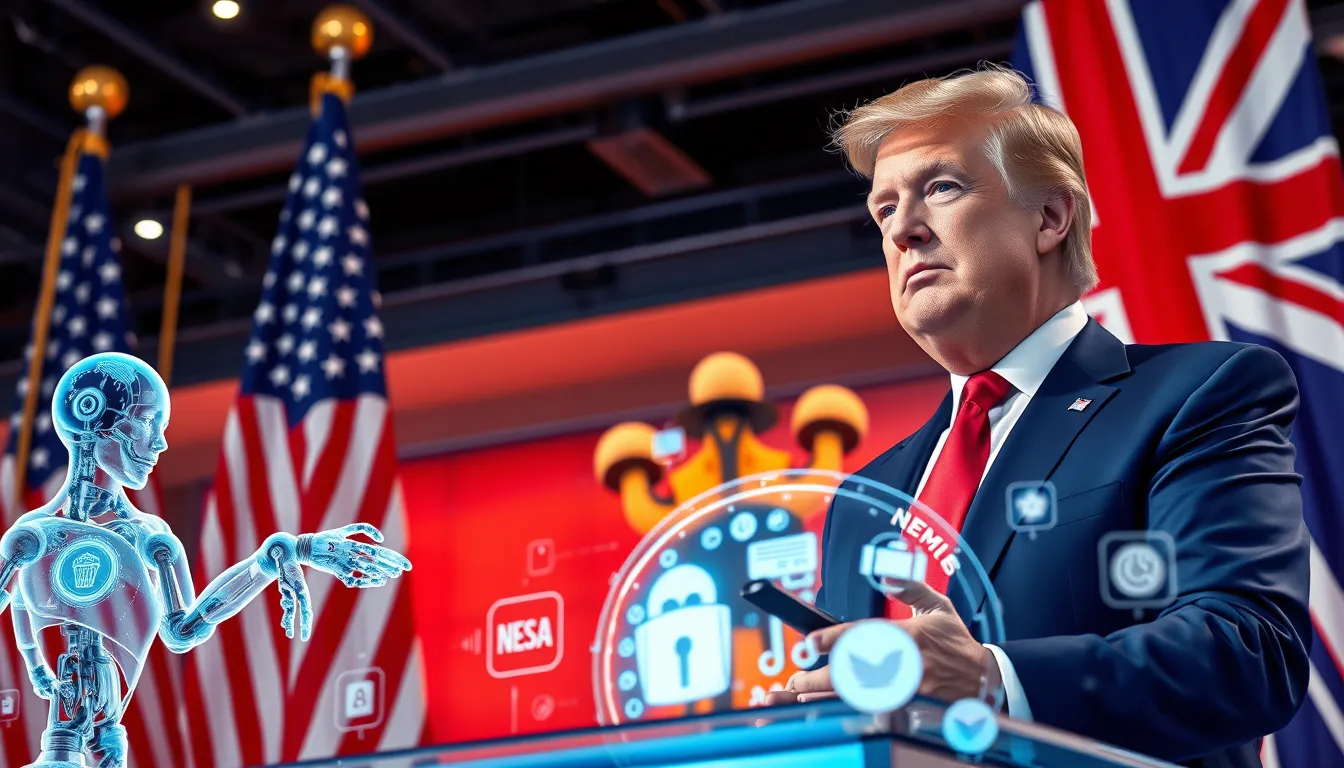Now Reading: US-UK Technology Deal: Revolutionizing Digital Security and Innovation
-
01
US-UK Technology Deal: Revolutionizing Digital Security and Innovation
US-UK Technology Deal: Revolutionizing Digital Security and Innovation

US-UK Technology Deal: Revolutionizing Digital Security and Innovation
In an era when technology continues to reshape global economies, the recent US-UK technology deal marks a significant milestone for digital security, artificial intelligence, and cybersecurity. This landmark agreement not only redefines transatlantic partnerships but also serves as a blueprint for how countries can collectively manage emerging tech. With ever-evolving digital threats, this deal comes at a crucial moment, aiming to boost research initiatives, educational programs, and regulatory frameworks that support innovation while balancing ethical considerations.
Overview of the US-UK Technology Deal
The US-UK technology deal has been a subject of intense discussion among policymakers, industry leaders, and tech experts. At the heart of the agreement are several core goals:
- Enhancing Digital Security: Strengthen the defenses of both public and private sectors against cyber threats.
- Fostering Innovation in Artificial Intelligence: Advance AI research and ethical deployment of new technologies.
- Boosting Cybersecurity Measures: Create unified standards to safeguard critical infrastructure and sensitive data.
- Initiating Research and Educational Programs: Train the next generation of tech innovators and thinkers.
This comprehensive approach ensures that as technology evolves, it does so in a secure, ethical, and sustainable manner. The collaborative efforts between the United States and the United Kingdom demonstrate a commitment to protecting digital landscapes while promoting cutting-edge research in artificial intelligence.
The Impact of US-UK Technology Deal on Cybersecurity
One of the most significant aspects of the agreement is its impact on cybersecurity. This section focuses on the long-tail keyword, “impact of US-UK tech deal on cybersecurity,” and unpacks how the deal is set to transform security protocols on both sides of the Atlantic.
Strengthening Cyber Defenses
The partnership has led to the development of advanced cybersecurity measures. By combining resources and expertise, both nations are working on:
- Developing Cyber Threat Intelligence Sharing Platforms: Encouraging collaboration between intelligence agencies and private sectors.
- Establishing Rapid Response Teams: Reducing response times during cyber-attacks by leveraging joint capabilities.
- Standardizing Cybersecurity Protocols: Creating uniform standards that govern digital security practices across various industries.
The impact of the US-UK technology deal on cybersecurity cannot be understated. With the increasing volume and sophistication of cyber threats, these measures enhance national security and build public trust in digital systems.
Role of Artificial Intelligence and Digital Security
Artificial intelligence plays a bridging role in the US-UK tech initiative. Experts predict that AI will not only enhance digital security but also streamline operations across multiple sectors.
- Automated Threat Detection: Using AI algorithms to identify and neutralize potential cyber threats far quicker than manual intervention.
- Data Analysis for Anomaly Detection: Leveraging machine learning to analyze vast amounts of data, thereby spotting deviations and potential breaches.
- Ethical AI Deployment: Ensuring that AI innovations comply with regulatory standards and uphold societal values.
These advancements emphasize how the US-UK technology deal is fostering an environment where artificial intelligence and cybersecurity collaborate to create robust defense systems. The synergy between digital security and AI is critical, particularly in light of the growing challenges in tech governance and the ethical implications of emerging technologies.
Highlights from the Tech Summit
The tech summit, where the deal was formalized, proved to be an essential platform for industry dialogue. The event brought together thought leaders, tech innovators, and policymakers who discussed the following:
- The future of digital security in a hyper-connected world.
- Strategies to balance innovation with regulation in the technology sector.
- Opportunities created by the transatlantic partnership to leverage advanced research initiatives.
- The ethical implications of deploying AI in sensitive areas such as cybersecurity and public administration.
Despite the serious themes, moments of levity emerged during the summit. Notably, former US President Donald Trump lightened up the atmosphere with humorous remarks about the rapid advancements in AI, highlighting the human element behind technological innovation. These light-hearted moments provided a unique balance, demonstrating that even serious discussions about national security and digital transformation can be approached with a sense of humor.
Collaborative Research Initiatives and Educational Programs
Beyond immediate cybersecurity and AI benefits, the US-UK technology deal is set to catalyze long-term research and educational programs. Both nations are dedicated to:
- Launching Joint Research Projects: Encouraging innovation across universities and tech companies.
- Developing Training Programs: Equipping future tech experts with the skills required to manage and secure emerging technologies.
- Promoting Technology Governance: Framing policies that guard against misuse while fostering a dynamic environment for technological advancement.
These initiatives aim to create a resilient digital infrastructure that supports continuous improvement, enabling both countries to remain competitive in a global economy increasingly reliant on digital security and artificial intelligence.
Conclusion
In summary, the US-UK technology deal is more than a formal agreement; it is a strategic initiative designed for the future. By focusing on digital security, advancing artificial intelligence research, and enhancing cybersecurity measures, this deal sets a new standard for international tech collaborations. The impact of the US-UK tech deal on cybersecurity is profound, paving the way for more secure and innovative digital solutions. As the partnership evolves, its ripple effects will likely influence global tech governance, proving that when innovation meets regulation, the results can benefit entire societies.
Ultimately, this transatlantic pact underscores a vital message: while technology continues to progress at a breakneck pace, collaboration and stringent security measures are indispensable for sustaining and enhancing digital ecosystems worldwide.

























